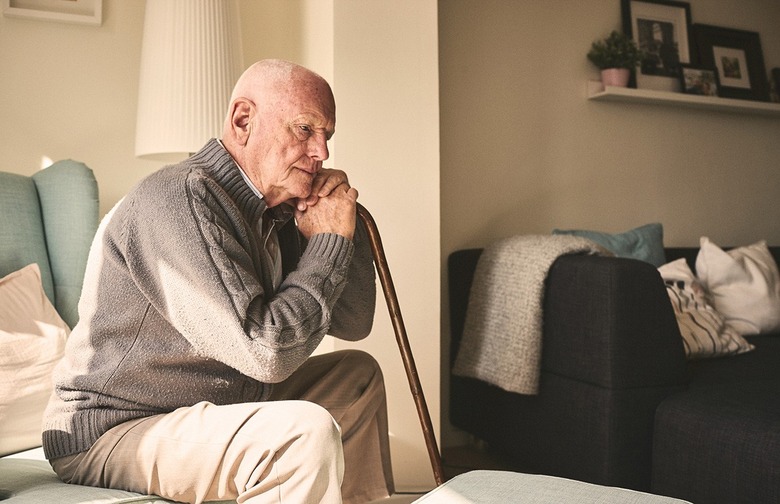What To Do If Your Loved One Struggles With Depression Gallery
Watching a loved one struggle with depression can be difficult. Depression can take people away from their hobbies, cause trouble in personal relationships, and complicate daily life. While watching this person struggle, you may feel helpless or wonder what you should do. Though you won't be able to solve their depression completely, there are things that you can do to help.
The symptoms of depression can vary from person to person, but the condition often involves prolonged periods of time wherein the person feels excessive sadness and lacks energy. Depression can interfere with sleep, appetite, and interest in normal activities such as hobbies or work.
A person with depression does feel sadness, but it's much more than just feeling sad. Depression is a legitimate mental health condition; it's outside of the person's control. It can be tempting to blame the person when they can't shake their symptoms, but it's important to understand that they can't "just cheer up." Depression affects the body and the brain on a chemical level — it's not a typical bout of sadness they're experiencing. To take care of your loved one struggling with depression, here's what you should do.
Learn more about depression
The more you understand about depression, the better equipped you will be to care for someone who's struggling with it. So by reading this article, you're off to a great start!
Express concern the right way
If you think your loved one may be depressed, it's OK to express concern. Avoid pointing out behaviors that they may perceive as flaws. You don't want to rub them the wrong way or make them think you're being critical — instead, keep the focus on getting help. Let them know that you care about them and that you're concerned.
Don’t judge or criticize their behavior
Even after you've initially expressed concern, avoid using judgmental language or criticizing your loved one for their depressive behavior. Accusing them of never leaving the house, complaining that they're being negative, or blaming them for intense emotions are some examples that you may want to avoid. You might make your loved one feel worse as a result, as well as coming across as unsupportive — causing them to pull away.
Encourage them to seek treatment
As much as you'd like to be able to fully support your loved one, you may not be able to do it all on your own. There are some things that are better left to a mental health professional. A licensed counselor or psychologist will likely be equipped with a wealth of tools for managing and easing symptoms of depression.
Offer to help them plan for their first therapy visit
It can be helpful to go into an initial therapy appointment with talking points written down. Otherwise, in the stress of the moment can get in the way of a productive session. The person may forget what they were going to say or draw a blank when they are asked about their symptoms. Let your loved one know that you're available to sit down with them and write it all out beforehand. If they decline your offer, respect their privacy!
Encourage them to stick with treatment
Starting therapy can be difficult — but so can sticking with it. There are a number of things that might get in the way of a person's commitment to going to therapy. It might take trying out a few different counselors before they find the one that's truly helpful. Additionally, it can be easy to get impatient when it takes a long time to truly start feeling the results. However, commitment is crucial when it comes to mental health care. Your loved one may need your support to ensure they are attending therapy appointments or remaining committed to finding the right provider.
Ask how you can help
Not sure how to best support them? Ask! Even if the person isn't sure or declines your offer, they'll appreciate that you asked. It can't hurt to give them a chance to communicate what they need.
Offer to listen
Sometimes, listening to their problems is better than trying to fix them. Lend an ear when you can and offer support just by being present. Just knowing that they have someone to vent to when they're feeling down can make a big difference.
Set clear boundaries
You can't offer to be there all the time — you have to prioritize your life, too. Especially if you're their only support system, the time and energy requested of you can become overwhelming. Make sure your loved one knows in advance how much you can give, so that you aren't left feeling like you're letting them down. Set boundaries in whatever way you need to. You may set limits on how much time, money, or space you can give.
Point out the positives
For someone struggling with depression, it can be difficult to discern positive aspects of a situation. Make a mental note to notice the bright side, and remind your loved one of things that can go right when they perceive everything as going wrong. Let them be negative sometimes, too, though. It is possible to be positive to a fault.
Watch for warning signs of suicide
It's difficult to talk about, but a loved one who is struggling with depression could be at risk of suicide. Know the warning signs to watch out for, which are listed on the website for the Suicide Prevention Lifeline. It's also probably a good idea to have their number saved, just in case. You should never keep it a secret or try to handle the situation yourself. Even if your loved one gets angry at you for calling, their life is the priority.
Make plans with them often
Though people with depression tend to withdraw, this isn't always the best for their mental health. Some alone time can be beneficial — but too much can exacerbate symptoms. Make plans with your loved one often. It doesn't have to be anything overwhelming, especially when your friend is feeling depressed. You can go for walks together (vitamin D helps, too!), go see a movie, or cook dinner together. It'll brighten both of your days!
Practice self-care
How can you expect to take care of someone else if you aren't taking care of yourself? Practice self-care by putting your health and your needs first. When you're at your best, you'll be better able to show up for others.
Be patient
With the right treatment, depression symptoms can improve. However, it doesn't happen overnight — it's going to take time. Be patient and take some space when you get frustrated or upset.
Help them to reduce anxiety
Anxiety and depression often go hand in hand. If your loved one struggles with depression, they are at a greater risk to struggle with anxiety, as well. Luckily, the support methods for both mental health conditions are pretty similar — here's what you can do to support a loved one with anxiety.
More From The Daily Meal:
These 20 Habits Are Making Your Anxiety Worse
These Are the Foods Neurologists Eat for Brain Health
20 Incredible Ways Happiness Affects Your Body
Stress, Sleep, and 10 Other Signs You Need Your Thyroid Checked















